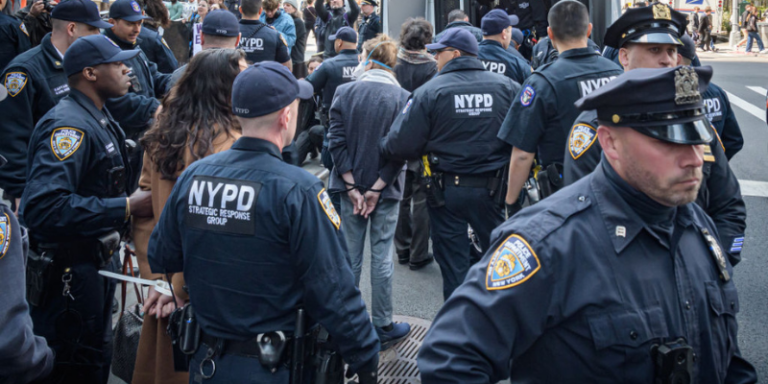Police Reform: Will It Actually Happen?
Will members of Congress work together to fix policing?
By: James Fite | July 5, 2020 | 405 Words

NYPD police officers (Photo by Erik McGregorLightRocket via Getty Images)
Americans demand solutions in the wake of George Floyd’s death in police custody. Both the House Democrats and the Senate Republicans have proposed bills to answer the call, but neither seems willing to consider the other’s offering. Has real police reform become no more than the latest buzzword going into the 2020 election?
A Sad Day For The Senate
Sen. Tim Scott (R-SC) proposed his “Justice Act” Wednesday, June 17, and from the very beginning, the Democrats were calling it dead on arrival.
The Justice Act would cut federal funding for police departments that continue to use chokeholds by 20% and would track no-knock raids, but it wouldn’t ban either outright. It would also stiffen requirements for law enforcement to keep “use of force” reports and establish a federal database to track such incidents. Additionally, there would be funding for training to de-escalate situations and to create a “duty to intervene” in hopes of preventing excessive force.
The bill included a few things for the Democrats, such as fulfilling their long-held wish to make lynching a federal hate crime. Senate Majority Leader Mitch McConnell (R-KY) promised an open amendment process, but the Democrats weren’t interested. When the vote happened, only Senators Doug Jones (D-AL), Joe Manchin (D-WV), and Angus King (I-ME) crossed the aisle in support of the Justice Act. Sen. Scott’s proposal required 60 votes to advance – and it fell short by five.
Will The House Win?
House Democrats revealed their reform bill on May 25, called the “Justice in Policing Act.” The House passed the bill Thursday, June 25, but it will likely fail in the Senate. This bill also cuts funding for departments that use chokeholds, but only by 10%. It, too, would establish a national database for tracking police use of force.
There would also be new training on racial and religious bias, and like the GOP bill, lynching would become a federal crime. Perhaps the most controversial actions, though, are the change in qualified immunity and the way force is justified. This legislation would lower the bar for officers to face criminal prosecution by allowing charges not only when misconduct is deemed intentional, but also in cases of reckless misconduct. As for justifying use of force, the restriction goes from “reasonable” to “necessary.”
Democrats in both chambers seem confident that this bill will clear Congress, but Senate Republicans warn that it’s as doomed as their own bill turned out to be.
















